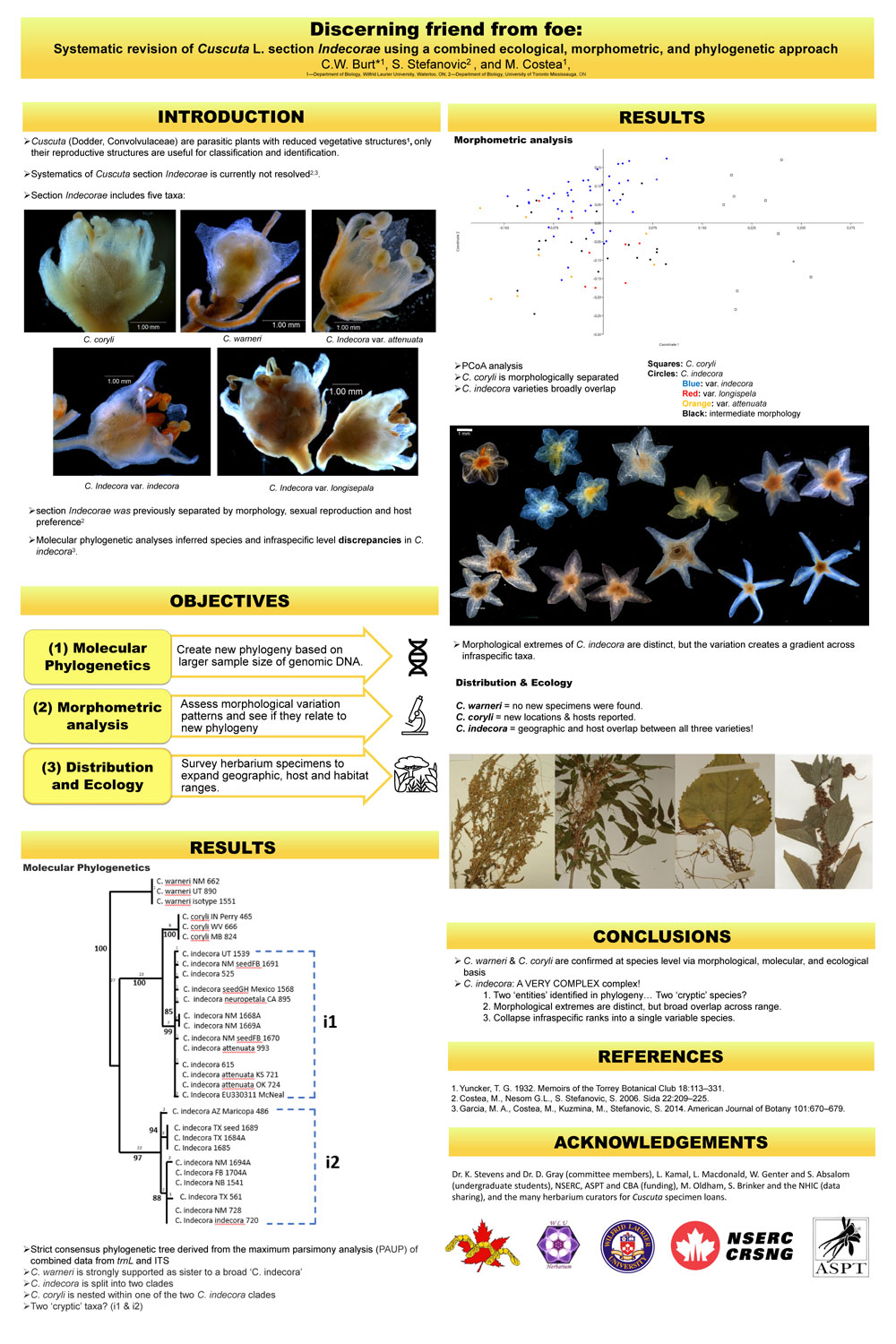
Cuscuta section Indecorae includes both agricultural pests and plants that are of conservation concern. Past taxonomic revisions of section Indecorae used solely morphology, reproductive biology and host preference to separate taxa. However, preliminary phylogenetic analyses using molecular data inferred species and infraspecific level polyphyly of C. indecora, strongly suggesting that species limits and infraspecific variation must be reconsidered. The objective of this study is to use new phylogenetic data in combination with morphometric and ecological studies to resolve this systematic issue of apparent polyphyly in section Indecorae. Herbarium specimens from across the geographic range of all section Indecorae taxa were examined. Phylogenetic trees were generated using plastid DNA (trnLF region) and nuclear ribosomal DNA (ITS region) data. Photographs and measurements for morphometric and micromorphological analysis have been captured using light and scanning electron microscopy. Measurements were aggregated and the extent of morphological variation among taxa was analyzed using clustering and ordination algorithms. Ecological information including geographical range, host range, and habitat were obtained by examining herbarium specimens and labels. Morphometric analyses of 109 herbarium specimens revealed a clear separation of C. warneri, C. coryli and a broadly defined C. indecora. The currently accepted varieties of C. indecora: indecora, longisepala and attenuata (especially the latter two), exhibited morphological overlap. Molecular analyses recovered C. warneri as sister to the other members of Indecorae clade and indicated that C. indecora consists of two sister lineages that do not correspond to the morphological variation patterns observed. Cuscuta coryli is nested within one these two lineages of C. indecora. A total of 39 host plants have been identified for C. indecora, 32 host plants for C. coryli, and 2 host plants for C. warneri. New geographic records of C. coryli are reported from Quebec, Canada.

